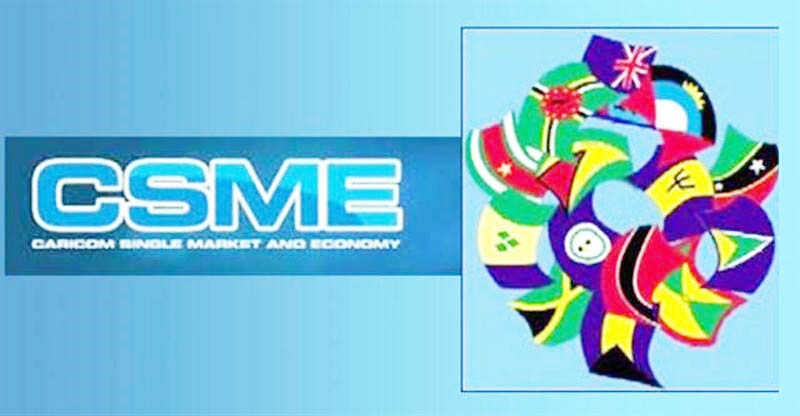The 33rd Inter-Sessional Meeting of CARICOM Heads which ended in Belize yesterday saw regional leaders agreeing on a review of the issue of local content in keeping with the CARICOM Single Market and Economy (CSME) agreements.
The issue was addressed at the meeting following the CARICOM Private Sector Organisation (CPSO) raising concerns over the Local Content legislation passed by Guyana for its oil and gas industry noting that it appeared to violate the revised Treaty of Chaguaramas.
The concerns came to the fore following a leaked email from CPSO in which Chairman, Gervase Warner who also happens to be the President and CEO of the Trinidad-based Massy Group raised the issue.
In December last year, the landmark Local Content Bill to ensure that businesses and workers here benefit from the burgeoning oil and gas sector was passed in the National Assembly. It sets out the minimum percentage of employment and goods and services procurement for locals while requiring that the data to substantiate the claims be submitted every year.
When asked about whether the heads discussed the concerns with Guyana’s Local Content Laws, Barbados Prime Minister Mia Mottley – who is leading the CARICOM Economic Recovery and Transformation Working Committee – told the closing press conference that the issue was placed before the leaders and they collectively decided that there should be a review of the broader local content requirements.
“There’s an open-ended committee of member states that will start to work very shortly recognizing that in new areas of economic activity, what we call sunrise industries, there may well be and I certainly support that there is a case for some level of local content. And the issue will be what that percentage of local content be and what is the timeline that it should be valid for because if you’re giving it to a sunrise industry, then they don’t need it 30 years from now or 20 years from now.
“So we’re going to do the discussions among ourselves with a view towards recommending to the full conference of heads what the appropriate framework should be such that no one will be held in breach for wanting to do that which is most natural,” she said.
Mottley added that Guyana and other countries seeking to introduce local content legislation in emerging industries is just a means of safeguarding its citizens’ rights to its wealth.
The regional leaders also discussed the issue of enhanced cooperation and implementation of CARICOM agreements. Mottley said that it was recognised that not all member states are positioned to implement recommendations at the same pace while citing the 2018 St Ann’s Declaration on the CSME which was signed in Trinidad.
As part of the declaration, leaders committed to taking action at the national level to advance the regional integration agenda; to ensure the equitable distribution among the peoples of the Community of the gains realised through the regional integration process; and agree on a formalised, structured mechanism to facilitate dialogue between the Councils of the Community and the private sector and labour among other areas of cooperation.
“I’m happy to report that not only did we agree on the framework for enhanced cooperation, but the protocol amending the treaty was opened this afternoon and a number of us signed…this will mean that where, I think the threshold is three countries raise an issue, once we can reach an agreement of two-thirds of the community that we can go ahead without unanimity.
“So that enhanced cooperation is critical towards us being able to progress within the community without necessarily requiring everybody to move at the same pace. And this is a recognition that there are individual circumstances and a community of sovereign nations that might not allow everybody to move at the same pace,” Mottley said.
At the opening of the conference, CARICOM Chair Prime Minister of Belize John Antonio Briceño said that talk of economic integration and the creation of a single market for all CARICOM member states should be followed by robust implementation. He noted that the CSME is at the centre of the region’s integration and is the answer to the questions of reduction of the region’s food import bill and the generation of economic growth.
“Reflecting on our undertakings in the St Ann Declaration of 2018, we need to re-double our efforts to complete the removal of the remaining barriers to intra-regional trade, empower our private sector and give full effect to the regime for free movement, including by addressing administrative obstacles.
“How do we improve and benefit more from trade with extra-regional partners? A robust CSME is indispensable to building resilient economies; it is central to our economic recovery. Integration binds together our Community, and this Community is at its core family,” the Prime Minister said.
He further explained that the region’s recovery should be aligned to a new regional agenda that is centred on creating prosperity for its people. He added that such a step would include digital transformation, the transformation of agri-food systems and empowering the CSME to deliver on its objectives.






